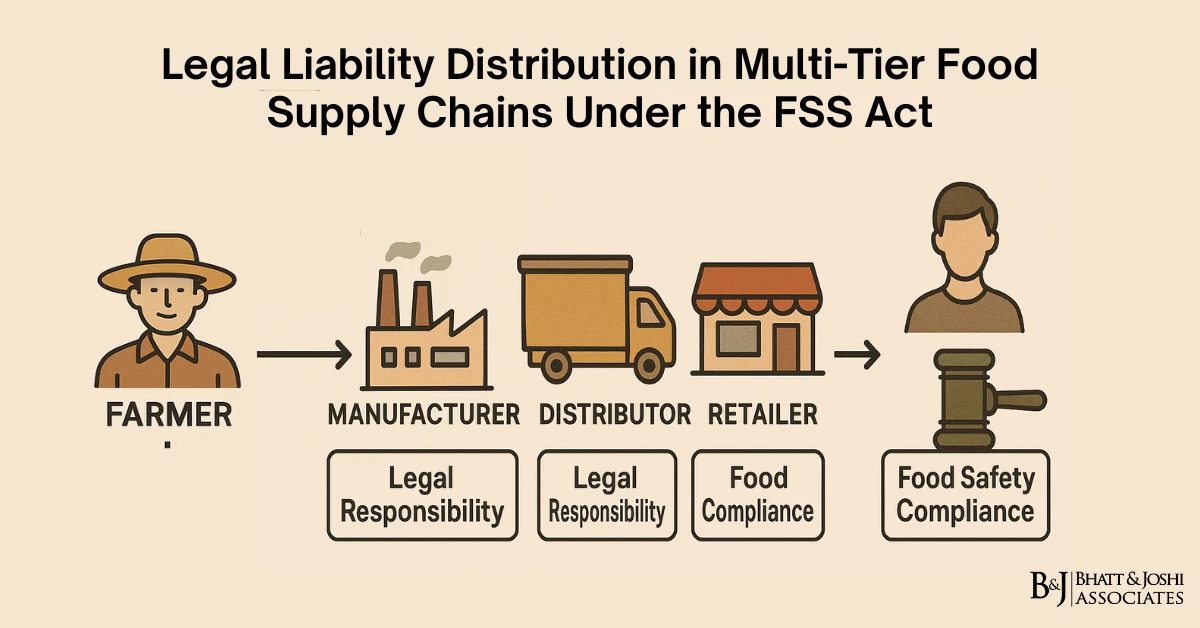I. Introduction
On May 2, 2025, the Supreme Court of India delivered a groundbreaking judgment that significantly altered the landscape of arbitration law in the country. The Court ruled that judicial authorities could modify arbitral awards under specific limited conditions, thereby departing from the traditional approach of either upholding or setting aside awards in their entirety. This landmark decision on the modification of arbitral awards in India marks a pivotal shift in the country’s arbitration jurisprudence, balancing the foundational principle of minimal judicial interference with practical considerations of justice, efficiency, and the overarching objectives of the Arbitration and Conciliation Act. The judgment articulated three primary justifications for this expanded judicial discretion: avoiding undue hardship to parties, reducing delays in dispute resolution, and upholding the fundamental objectives of the arbitration framework. This article examines the legal reasoning behind this significant development, analyzes its practical implications for stakeholders in arbitration proceedings, and situates the ruling within the broader context of international arbitration practices.
II. Historical Context of Judicial Intervention in Arbitral Awards
A. The Principle of Minimal Judicial Interference
The doctrine of minimal judicial interference has been a cornerstone of arbitration law globally and in India. This principle recognizes the autonomy of arbitration as an alternative dispute resolution mechanism and acknowledges that excessive court intervention would undermine its efficacy. The Supreme Court in Bhatia International v. Bulk Trading S.A. (2002) emphasized that “interference with arbitral awards by courts should be minimal and only on grounds specifically mentioned in the Act.” This approach was further reinforced in Shri Lal Mahal Ltd. v. Progetto Grano Spa (2014), where the Court narrowly interpreted the grounds for refusing enforcement of foreign awards.
B. Statutory Framework Under the Arbitration and Conciliation Act
The Arbitration and Conciliation Act, 1996, modeled on the UNCITRAL framework, enumerates specific and limited grounds for setting aside domestic awards under Section 34 and for refusing enforcement of foreign awards under Section 48. Traditionally, courts were understood to have binary options: either uphold the award entirely or set it aside if statutory grounds were established. The 2015 amendments to the Act further restricted judicial intervention by introducing strict timelines for disposal of applications challenging awards and clarifying that an award could not be set aside merely on the ground of erroneous application of law or by reappreciation of evidence.
III. The Landmark May 2025 Decision
A. Factual Background and Procedural History
The case arose from a commercial dispute between two infrastructure companies over delays in a highway construction project. The arbitral tribunal had awarded substantial damages to the claimant but had made a mathematical error in calculating interest, resulting in an additional financial burden of nearly ₹50 crores on the respondent. The respondent challenged the award under Section 34, arguing that while the substantive findings were acceptable, the interest calculation constituted a patent illegality. The High Court, following the traditional approach, found itself constrained to either uphold or set aside the entire award, ultimately choosing the former despite acknowledging the calculation error.
B. The Court’s Reasoning and Legal Analysis
The Supreme Court, hearing the appeal, undertook a purposive interpretation of the Arbitration Act. The Court observed that while the statute did not explicitly grant powers of modification, neither did it expressly prohibit such intervention. Justice Khanna, delivering the majority opinion, emphasized that “the legislative intent behind the Arbitration Act was to provide efficient, expeditious, and final resolution of disputes.” The Court reasoned that setting aside an entire award for a correctable error would frustrate this legislative purpose, forcing parties into a new round of arbitration and perpetuating the very delays the Act sought to eliminate.
The Court drew support from the principle of “reading down” as established in Hindustan Construction Company v. Union of India (2019), where statutory provisions were interpreted to preserve their constitutional validity. Similarly, the Court interpreted Sections 34 and 48 to include an implicit power of modification in limited circumstances, thereby preserving the overall efficiency of the arbitration process while addressing specific deficiencies in awards.
IV. Grounds for Modification of Arbitral Awards
A. Avoiding Undue Hardship
The Court articulated that modification of arbitral awards would be permissible where strict application of the binary approach (uphold or set aside) would cause undue hardship disproportionate to the nature of the defect in the award. This ground was particularly relevant in cases involving computational errors, typographical mistakes, or other technical deficiencies that did not affect the substantive merits of the decision. The Court emphasized that this ground should be invoked sparingly and only when the hardship was demonstrably severe and clearly attributable to an error in the award.
B. Reducing Delays in Dispute Resolution
The Court recognized that setting aside awards for minor or correctable errors necessitated a fresh arbitration proceeding, causing significant delays contrary to the Act’s objective of expeditious dispute resolution. Justice Chandrachud, in a concurring opinion, noted that “judicial economy and efficiency demand that courts have flexibility to correct patent errors rather than requiring parties to undergo the entire arbitration process anew.” This ground acknowledges the practical realities of dispute resolution and prioritizes substantive justice over procedural rigidity.
C. Upholding the Objectives of the Arbitration Act
The third ground centered on the fundamental purposes of the arbitration framework. The Court held that modification would be appropriate when necessary to fulfill the Act’s objectives of providing an efficient, cost-effective, and fair mechanism for resolving commercial disputes. This purposive approach represents a significant jurisprudential development, prioritizing the spirit of the law over its literal interpretation when the latter would lead to outcomes contrary to legislative intent.
V. Impact on Arbitration Practice in India
A. Enhanced Judicial Flexibility
The judgment provides courts with a more nuanced toolbox for addressing deficiencies in arbitral awards. Rather than the all-or-nothing approach, judges can now calibrate their intervention to the specific nature and extent of the defect. This flexibility is particularly valuable in commercial disputes, where setting aside an entire award for a minor error can have disproportionate consequences for business relationships and operations.
B. Potential for Streamlining Dispute Resolution
By allowing courts to modify rather than set aside awards with correctable errors, the ruling promises to significantly reduce the time and resources expended on dispute resolution. Parties no longer need to recommence arbitration proceedings for technical or limited defects in otherwise sound awards. This streamlining effect aligns with India’s broader judicial reform efforts aimed at reducing pendency and enhancing access to justice.
C. Reduction in Litigation Backlogs
The Court explicitly acknowledged the potential for this approach to alleviate the burden on the judicial system. With over 4.5 million cases pending in High Courts alone, the elimination of unnecessary re-arbitrations represents a meaningful contribution to backlog reduction. Senior Advocate Arvind Datar, commenting on the judgment, observed that “approximately 15-20% of arbitration challenges involve correctable errors that previously necessitated setting aside entire awards and initiating fresh proceedings.”
VI. Comparative Perspective: International Approaches
A. UNCITRAL Model Law and Limited Intervention
The UNCITRAL Model Law, which forms the basis for arbitration legislation in many jurisdictions, generally adheres to the principle of limited judicial intervention. However, several countries have adapted this framework to incorporate varying degrees of flexibility. The Swiss Federal Tribunal, for instance, has the authority to suspend annulment proceedings and remand awards to arbitral tribunals for reconsideration of specific issues. The Supreme Court’s approach represents a distinctive Indian contribution to this evolving international dialogue on the appropriate scope of judicial review in arbitration.
B. Emerging Global Trends in Arbitral Award Review
The Indian approach aligns with emerging international trends toward what some scholars term “calibrated intervention” in arbitration. Singapore’s International Arbitration Act allows courts to remit awards to tribunals for reconsideration, while the English Arbitration Act permits courts to vary awards in certain circumstances. The Supreme Court’s ruling positions India within this progressive current of jurisdictions seeking to balance respect for arbitral autonomy with practical considerations of justice and efficiency.
VII. Conclusion: New Judicial Path for Arbitral Award Modification
The Supreme Court’s May 2025 decision represents a significant evolution in India’s arbitration jurisprudence, introducing a more nuanced approach to judicial review of arbitral awards. By permitting modification of arbitral awards under specified limited conditions, the Court has crafted a solution that respects the principle of minimal judicial interference while addressing practical challenges in the arbitration process. This development enhances India’s attractiveness as an arbitration-friendly jurisdiction and demonstrates the judiciary’s commitment to developing the law in response to commercial realities.
As this precedent is applied and refined in subsequent cases, practitioners and courts will need to delineate the precise boundaries of this modification power to ensure it remains a limited exception rather than becoming a backdoor to substantive review of arbitral decisions. The success of this jurisprudential innovation will ultimately be measured by its contribution to making arbitration in India more efficient, predictable, and just—objectives that align with both the letter and spirit of the Arbitration and Conciliation Act.
VIII. References
- Arbitration and Conciliation Act, 1996 (as amended up to 2024).
- Bhatia International v. Bulk Trading S.A., (2002) 4 SCC 105.
- Hindustan Construction Company v. Union of India, (2019) 17 SCC 324.
- “Supreme Court Allows Modification of Arbitral Awards,” May 2, 2025.
- Redfern, A., & Hunter, M. (2024). Redfern and Hunter on International Arbitration (8th ed.). Oxford University Press.
- Shri Lal Mahal Ltd. v. Progetto Grano Spa, (2014) 2 SCC 433.
- UNCITRAL Model Law on International Commercial Arbitration, 1985 (with amendments as adopted in 2006).














